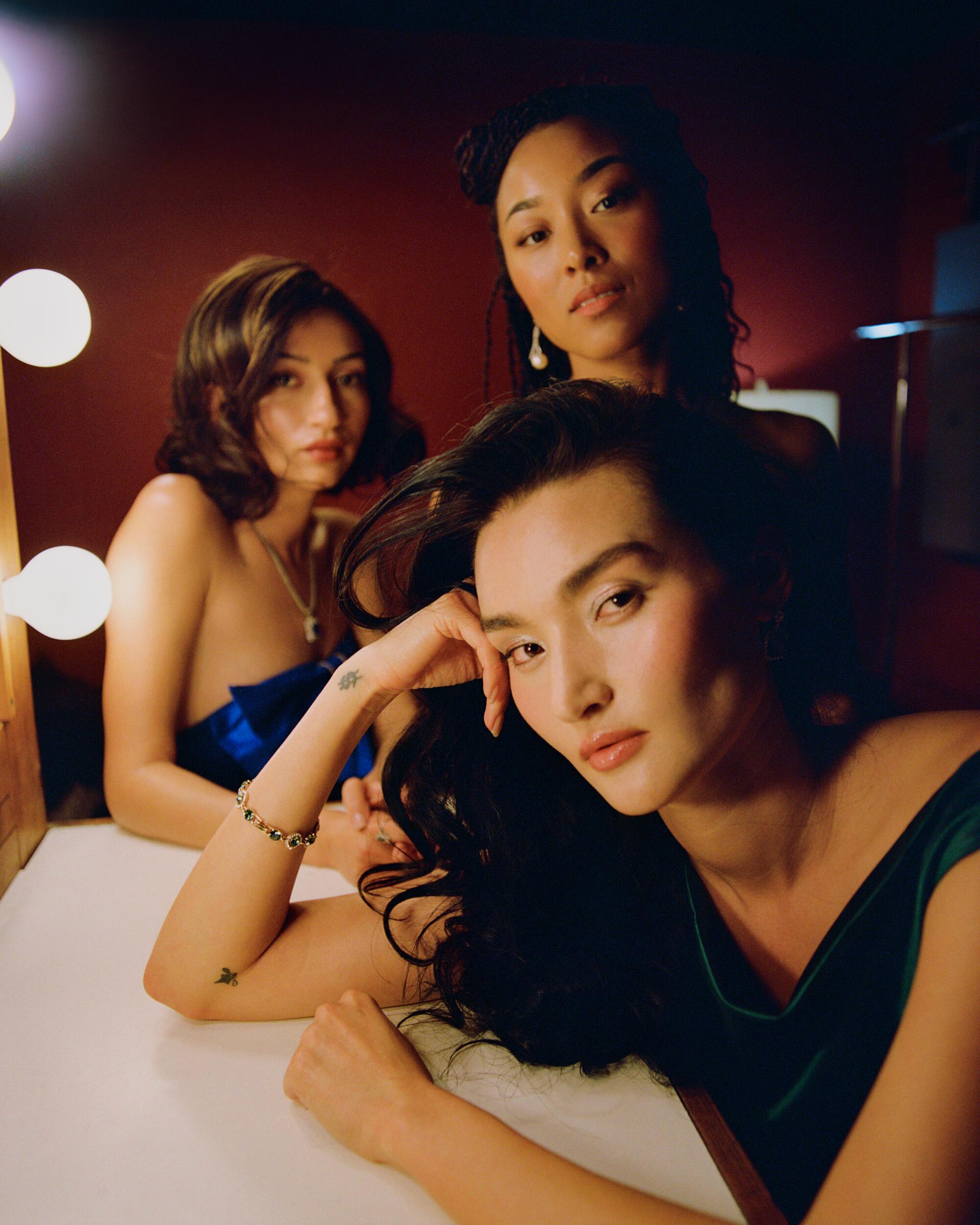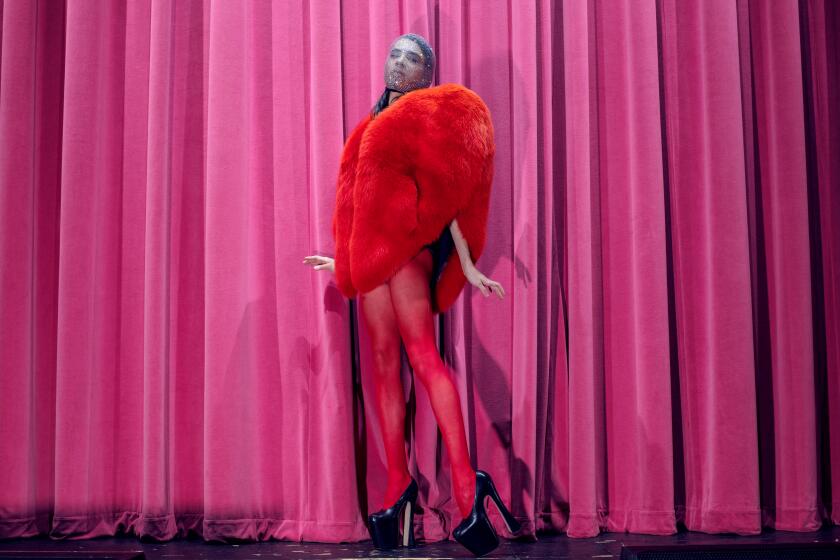- Share via

This story is part of Image’s September Image Makers issue, celebrating some of the most daring and innovative artists working in fashion today.
Since early 2022, photographer Emanuel Hahn has been working on his series “America Fever,” in which he recreates and reimagines the stories of Korean immigrants to the U.S. over the 20th century. His first series, “Jultagi,” used the Korean tightrope walker as a metaphor for the immigrant experience. Other series have explored immigrant love, the ways in which Koreans adopted American ways of life, like car and motorcycle culture. His latest series, “Miss Koreatown,” dives into the history of beauty pageants in L.A.’s Koreatown. In this as-told-to interview, Hahn shares the backstory.
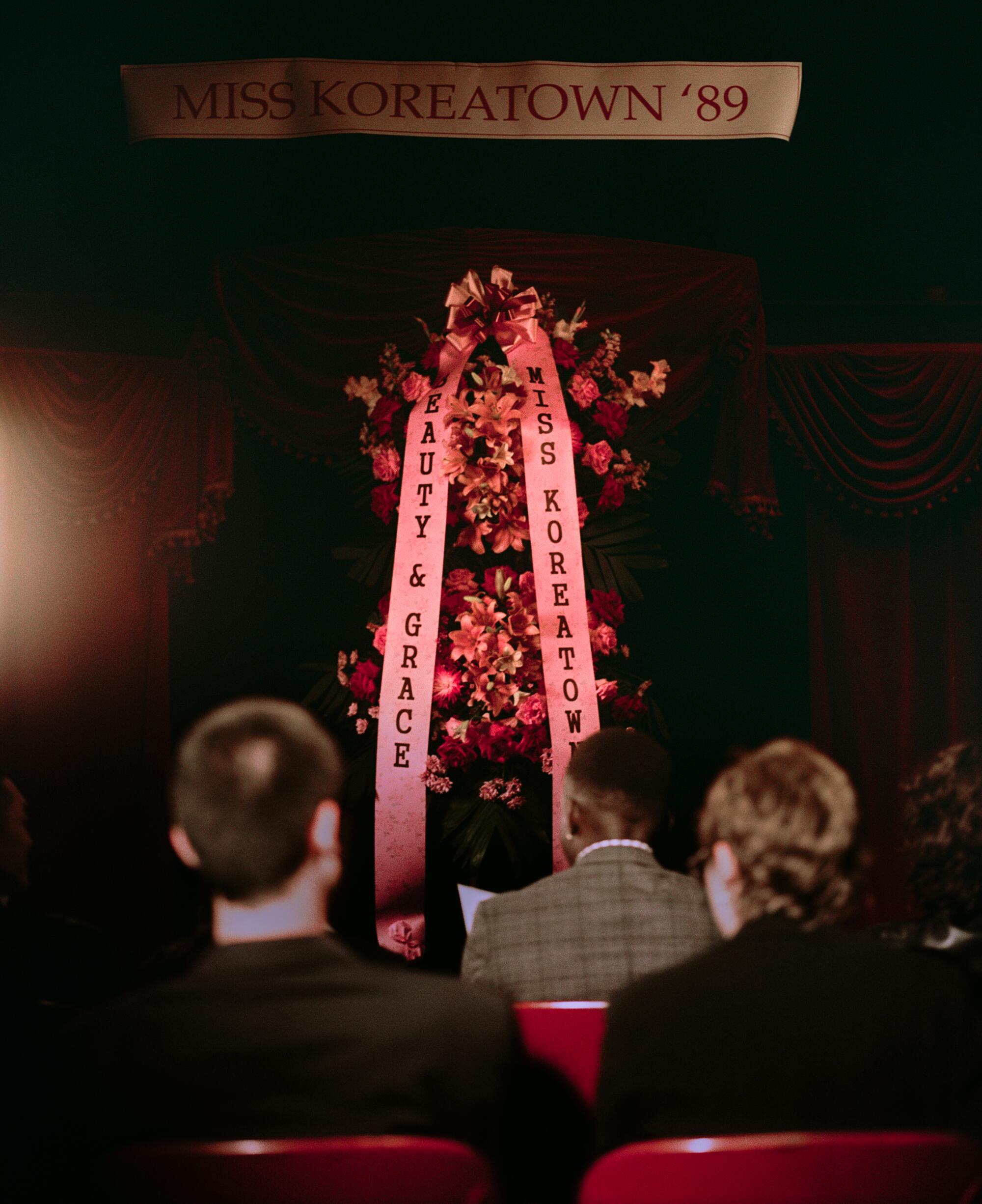
“America Fever” is a staged-narrative photo and video series that combines a lot of Korean cultural histories and motifs with the myth of the American West. It was an idea that was always in the back of my mind as a third-culture kid growing up in Singapore and Cambodia and all these other places that were not my birth country or my mother’s country, which is America and Korea, respectively. I was trying to find my own sense of my Korean identity, and that led me to a lot of interest in Korean history, folklore and traditional elements that I was not familiar with. When I moved to the U.S., there was that added element of being Korean and American, but also never having spent time in either South Korea or America until I was 20 years old. It was simultaneously an effort to reach back into my Korean heritage and make sense of my newfound Korean American identity.
From Vivienne Westwood “SEX” chokers to John Galliano-era Dior logo rings, the list in this vintage archive goes on, and it goes deep.
I think the staged narrative component came because I was very intrigued by staged narrative photographers like Gregory Crewdson and Alex Prager. There was just something intriguing about building a scene to convey your ideas, and world-build so that you could create this universe that was completely your own. I made four to five images in early 2023 for a group show in New York with a Google Fellowship, and then I kept making images on my own. This year, I made this work “Miss Koreatown.” The series follows an arc — it’s almost like this curve that goes up and then down: It’s the immigrant arrival, then the struggle, then the joys and ecstasies, but also the reckoning of what it’s like to be Asian American in this day and age, which, yes, there’s integration, but there’s also still so much othering and wondering if there’s a place for you.
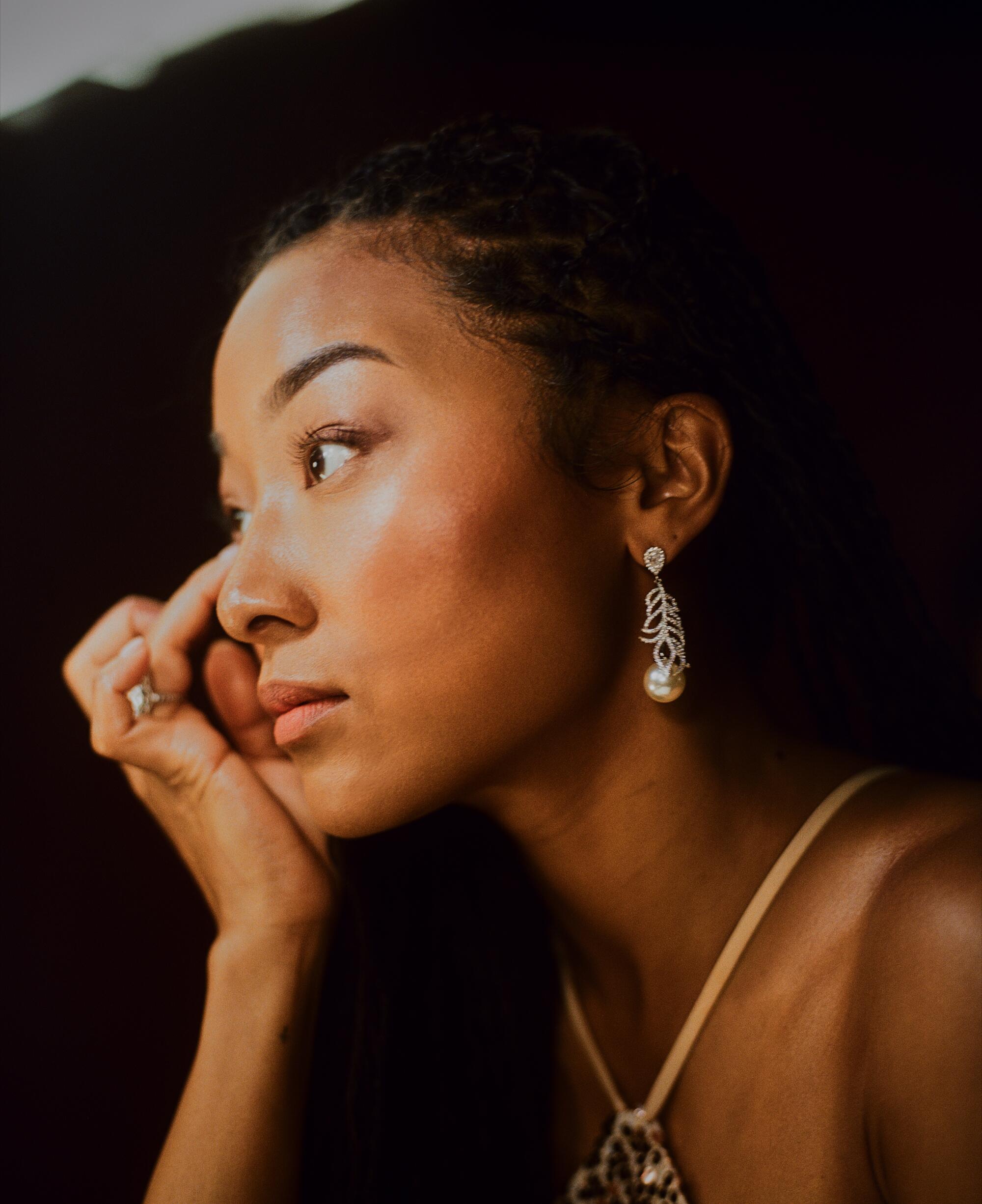
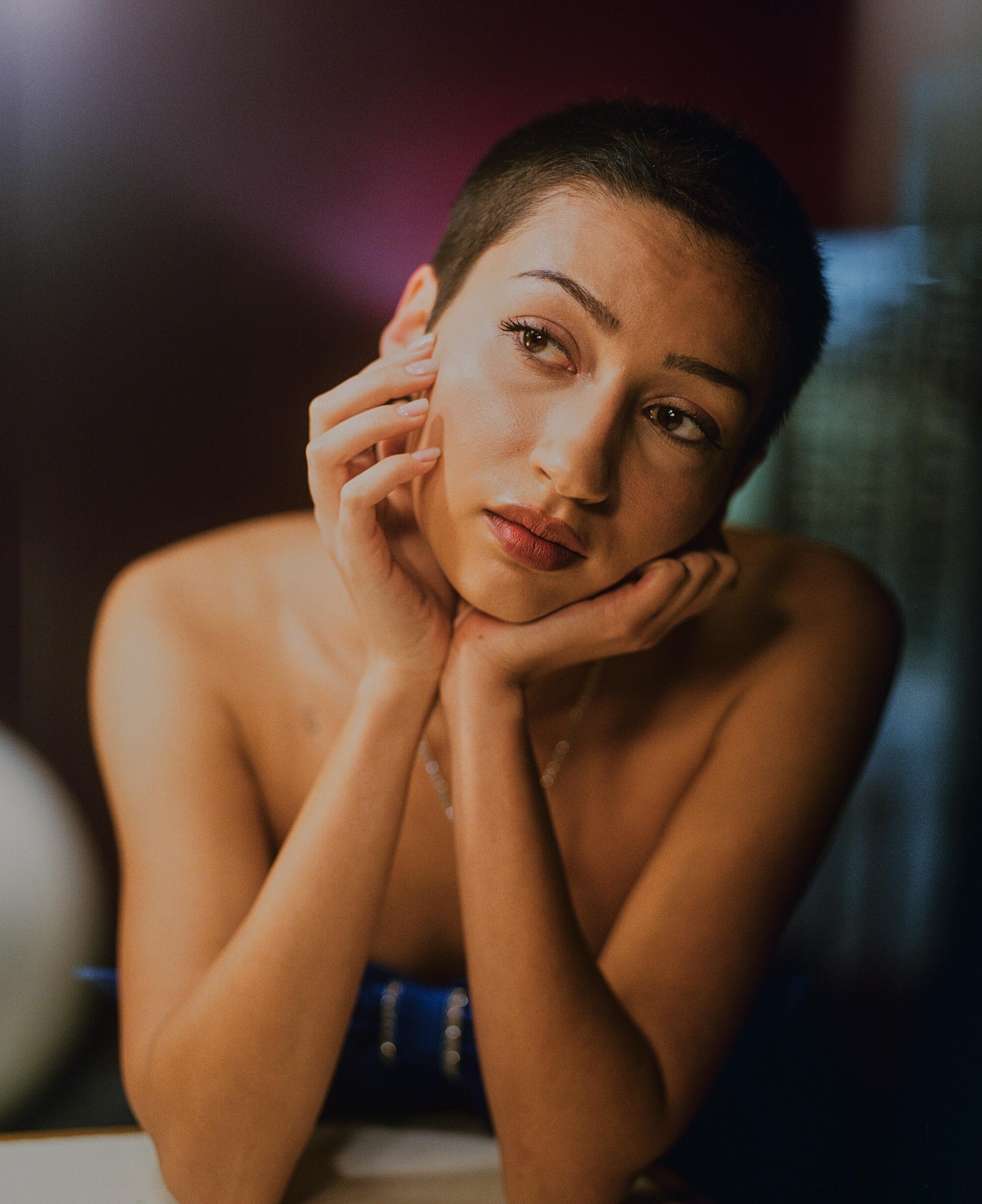
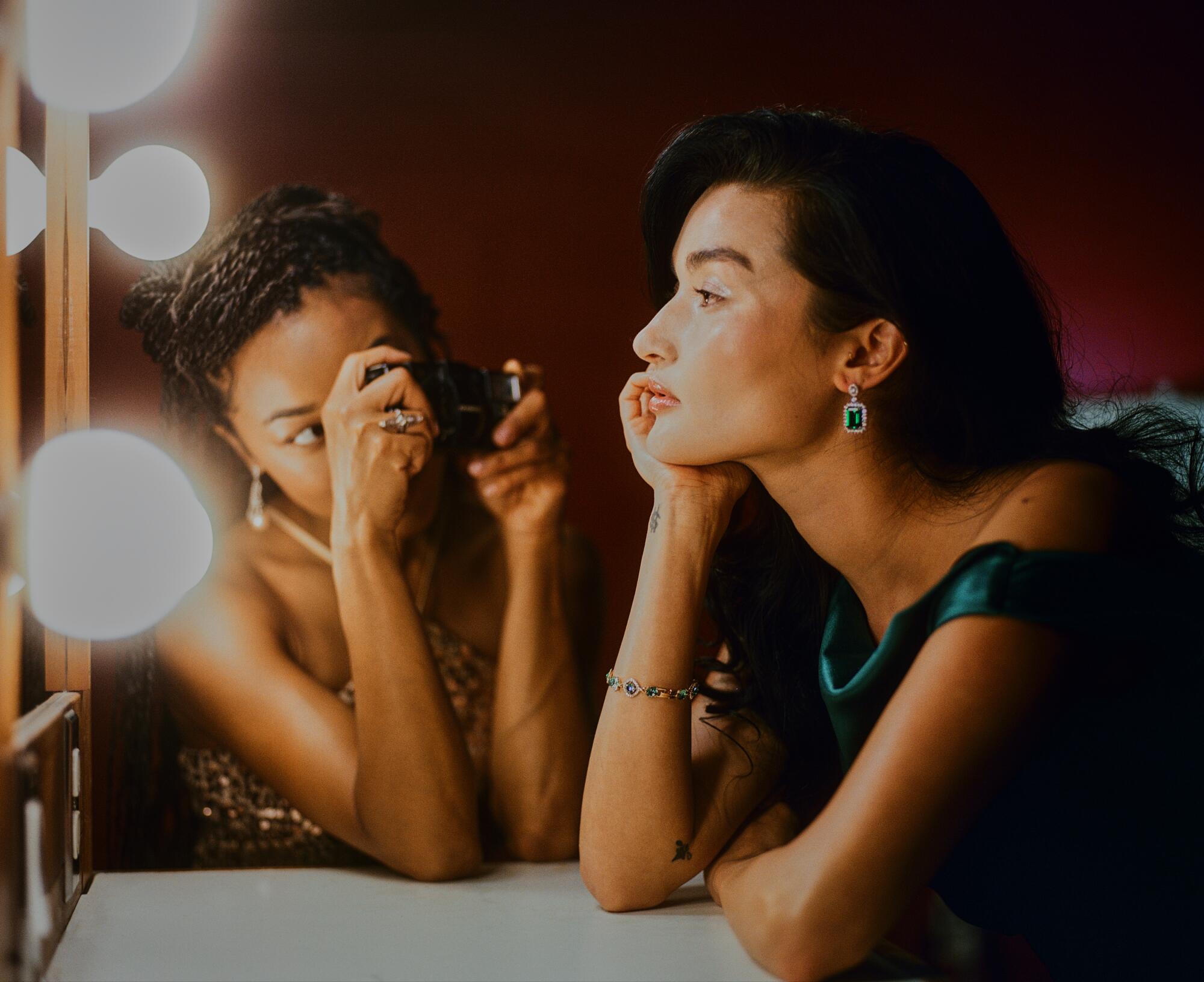
The beauty pageant sits in that joy and ecstasy phase, but with an asterisk, because I’m still complicating the idea of the beauty pageant through using mixed-race contestants. They’re all part-Korean: Minji is white and Korean, Blair is Black and Korean, and Ari is Puerto Rican and Korean. Historically, mixed-race Koreans have been ostracized in Korean culture, and in the U.S. less so, but still, there was this sense that they didn’t really feel like they belonged in either culture. If you were Black and Korean in post-war in Korea, you had a really tough life, because there was racism against Koreans, both from American GIs and from Korean culture. The beauty pageant is a celebration of being Korean, but it’s also redefining what beauty is against the backdrop of a lot of Korean beauty pageants, which often favor super pale, porcelain skin. I’ve basically shifted the context to L.A., which is one of the most diverse places on Earth, and just the fact that, in L.A., we hold space for diversity.
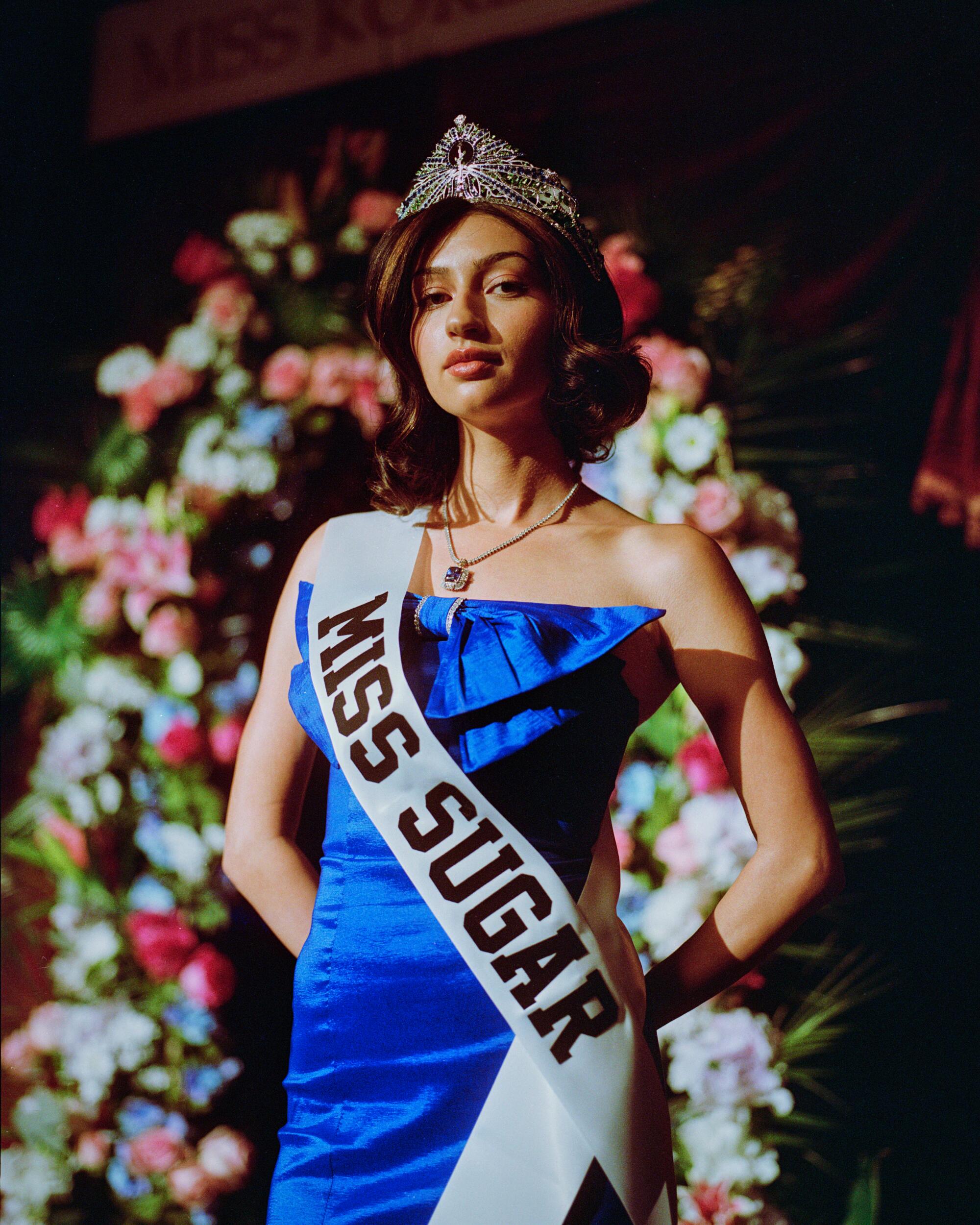
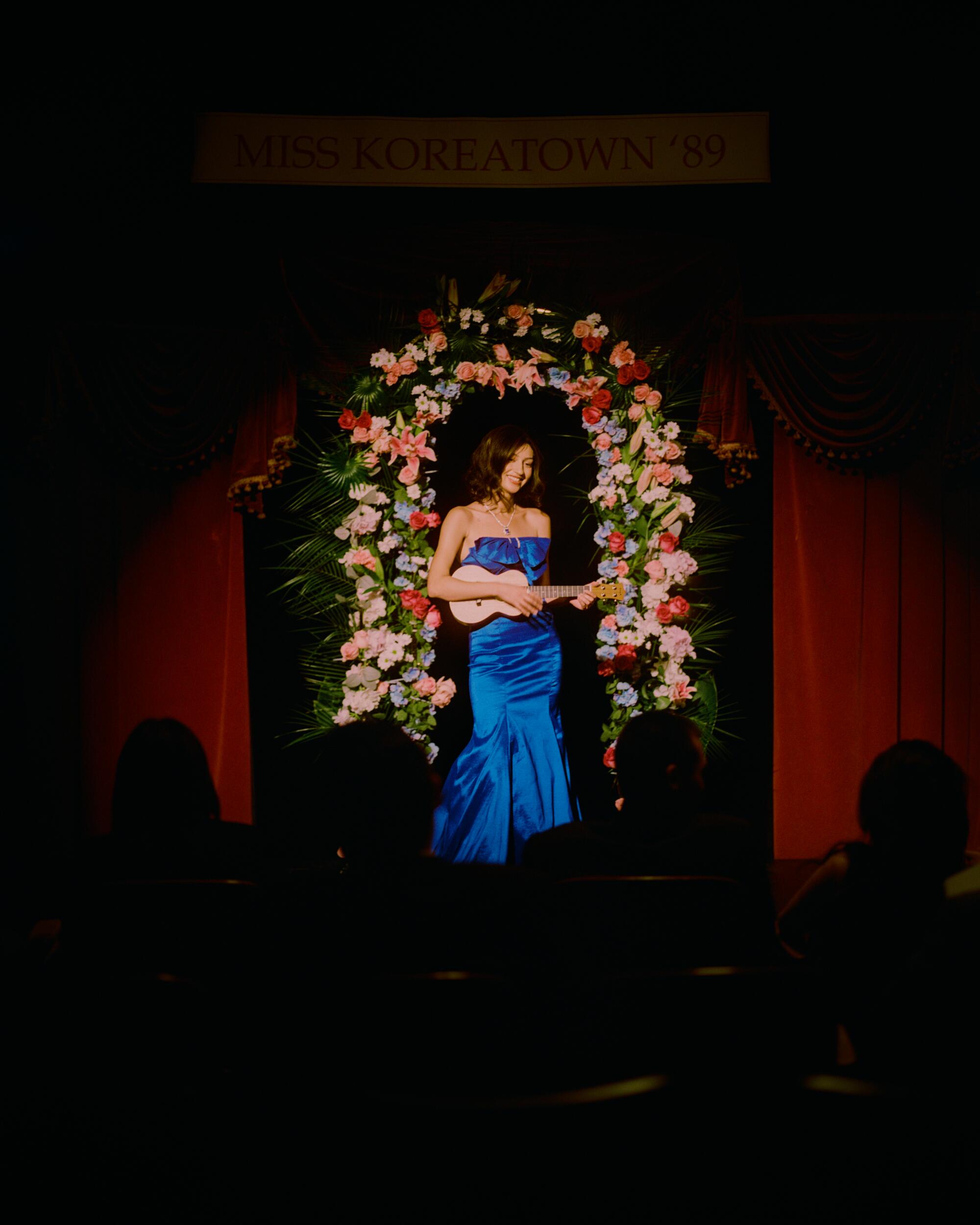
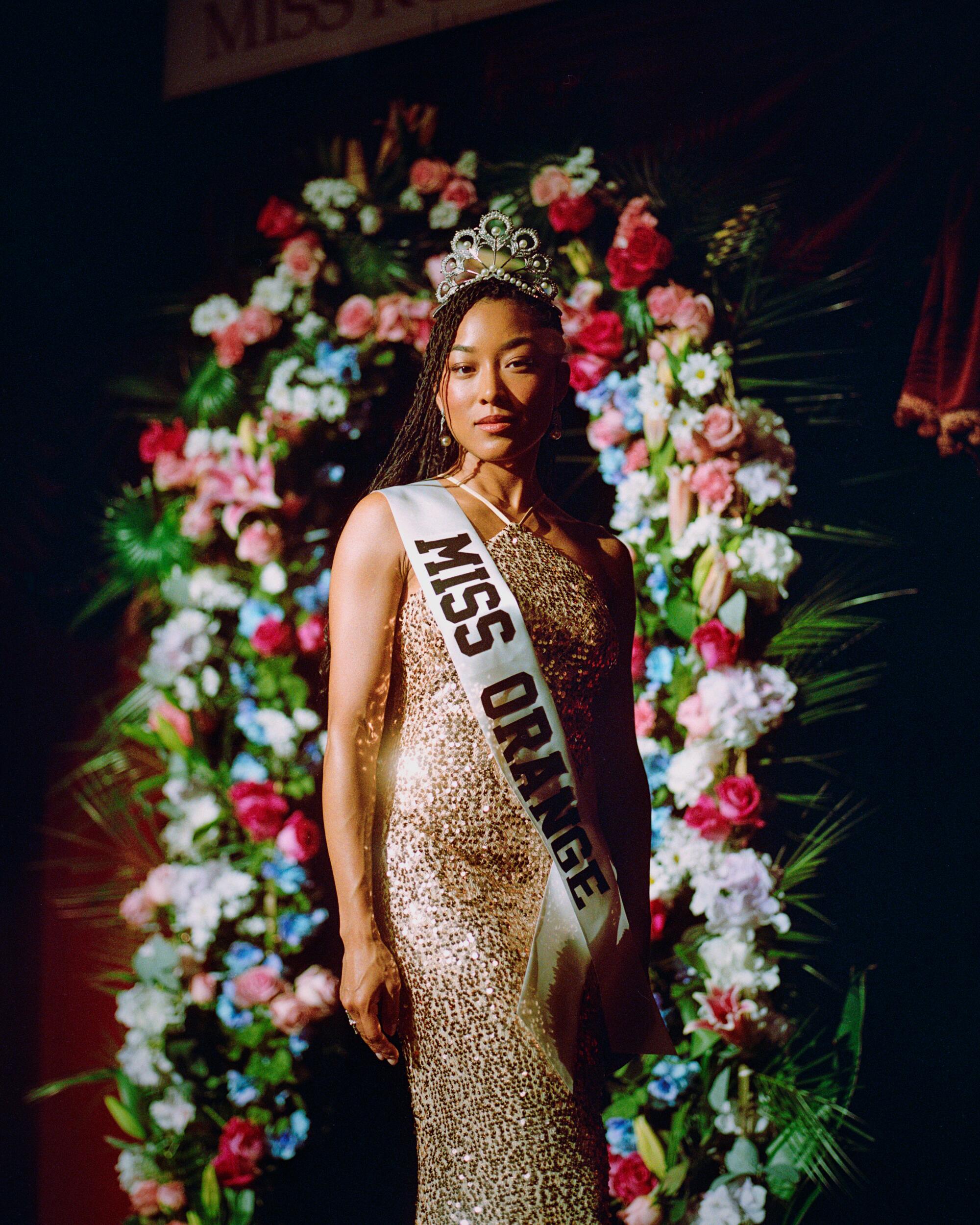
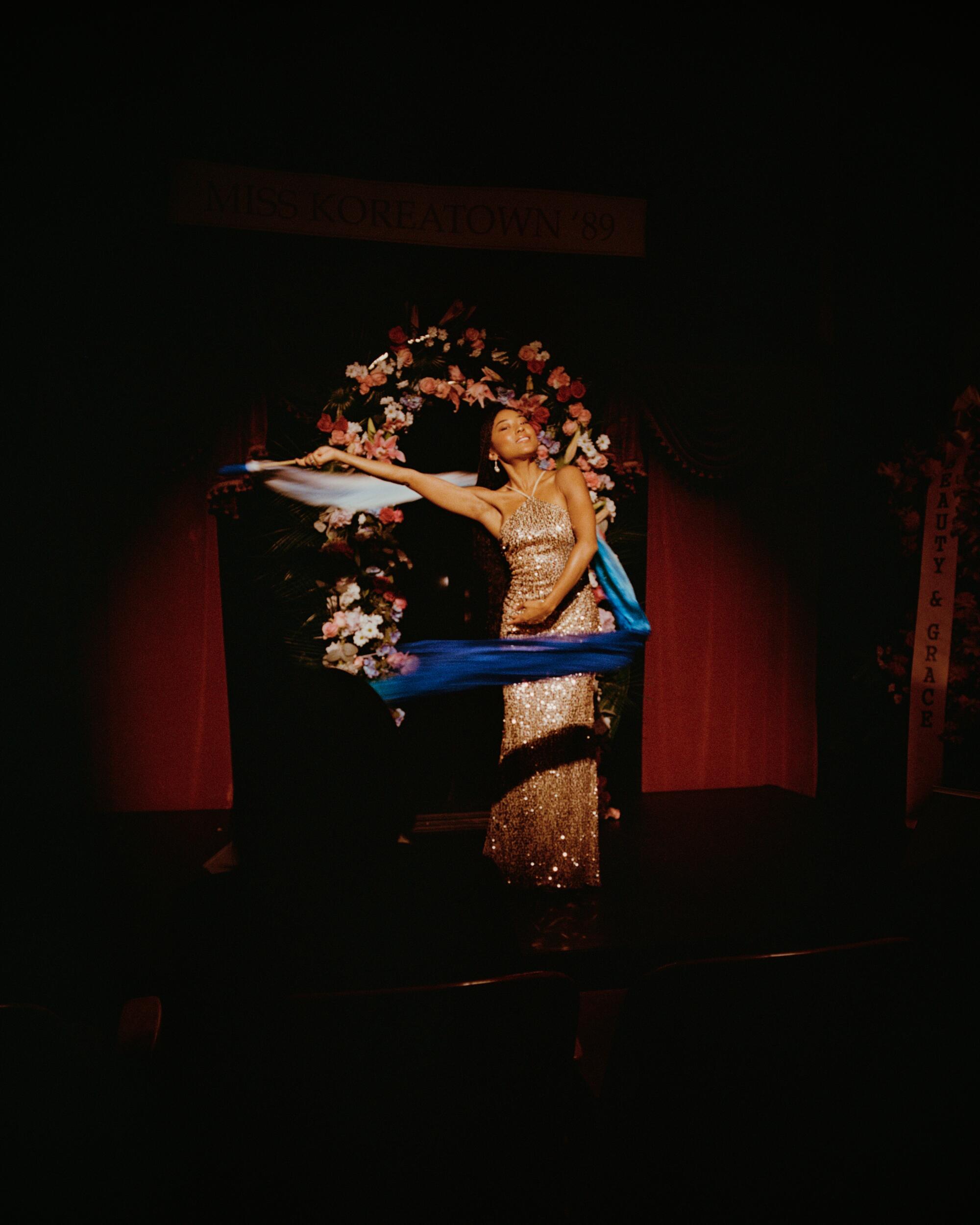
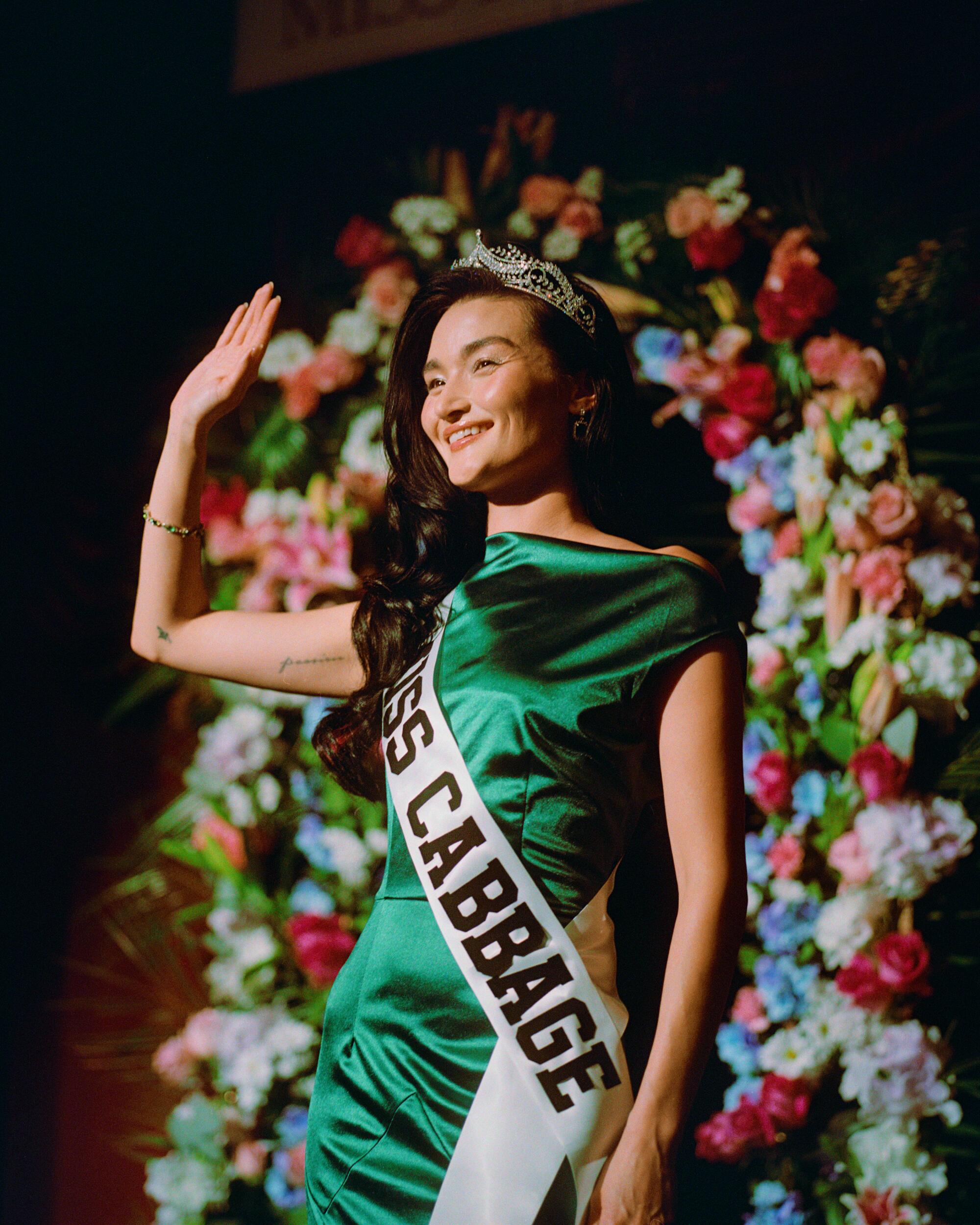
The sachets also nod to the stages of immigration: Miss Sugar refers to the sugar plantations in Hawaii, which was one of the first destinations for Korean laborers. And then from there, a lot of the laborers moved on to California, where they worked on citrus groves — so that’s Miss Orange. Then, Miss Cabbage is this later group, where Korean immigrants that came in the ‘70s and wanted to make kimchi, so they started growing cabbage more. I’m using wardrobe and prop details to nod to Korean history.
There used to be a lot of Korea Day celebrations. There were the beauty pageants, as well as a parade in Koreatown in the ‘80s and ‘90s. A lot of it was organized by different institutions within Koreatown and small businesses to celebrate Korean culture and heritage. It was one of the few times where the community came together to just celebrate their identity. I think it had the effect of sharing Korean culture with the rest of America, because back in the ‘80s or ‘90s, a lot of Americans didn’t know about Korea outside of the context of the Korean War. That was the first time that people would hear about or learn about the hanbok, which is the Korean dress, or Korean food. It was a way for people in Koreatown to share their stories, and then, in conjunction with those, there were Miss Koreatowns.
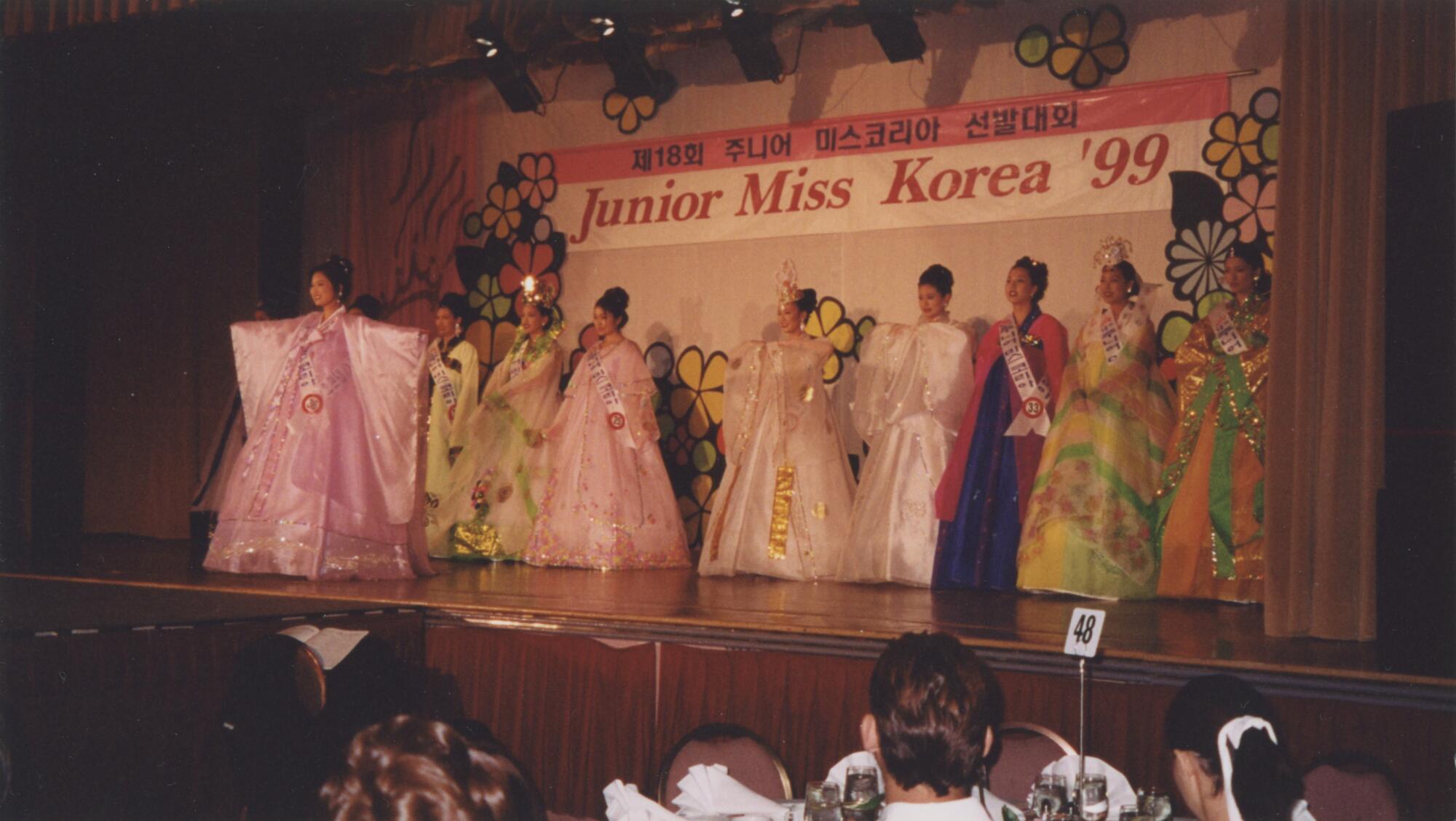
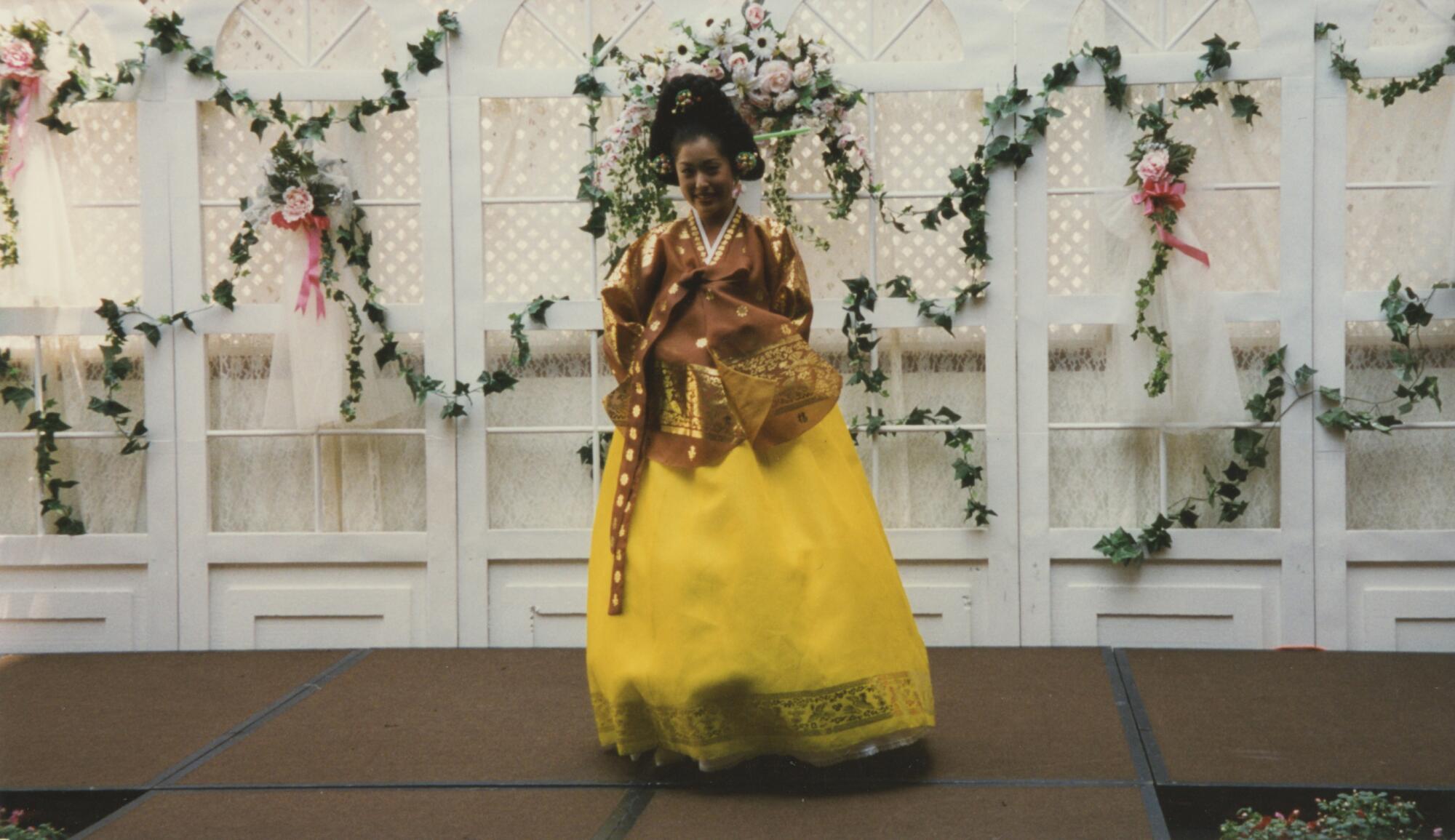
It’s very hard to track down imagery, but I did see some through asking small business owners who had archival photos and doing research online. The Miss Koreatowns were often very small endeavors. It wasn’t a grand thing at all, and there’s just something so DIY about it that I found really endearing. There were also Miss California pageants, where you had different contestants coming from North and SoCal, San Luis Obispo, and throughout California, where they would meet in Koreatown, and I thought that was cool too, speaking to the diversity of Korean experiences even within California. This is a part of Koreatown history that has not been archived and shared well. I wanted to talk about it a little bit, and put my lens of cultural history on it.
—As told to Elisa Wouk Almino
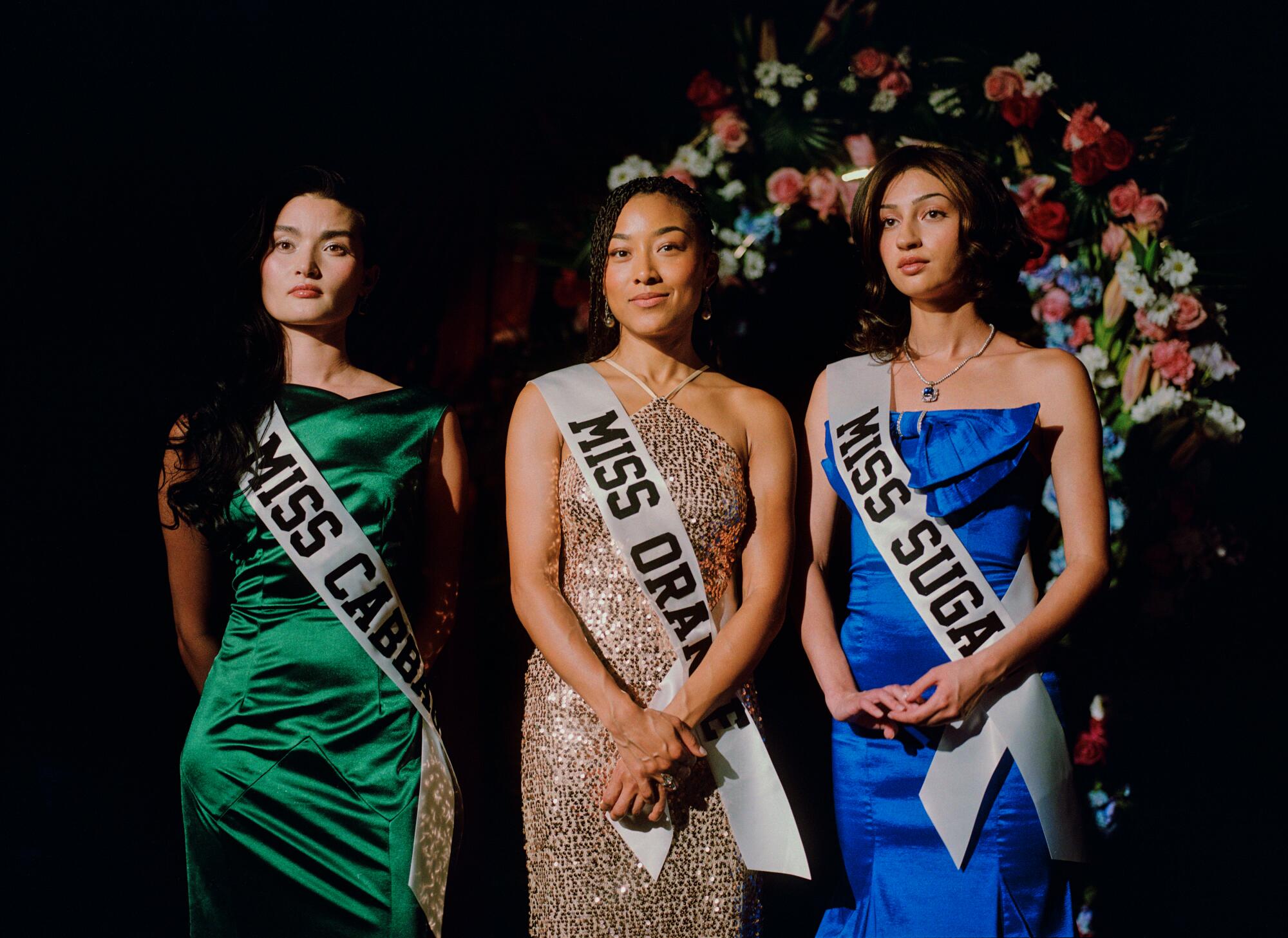
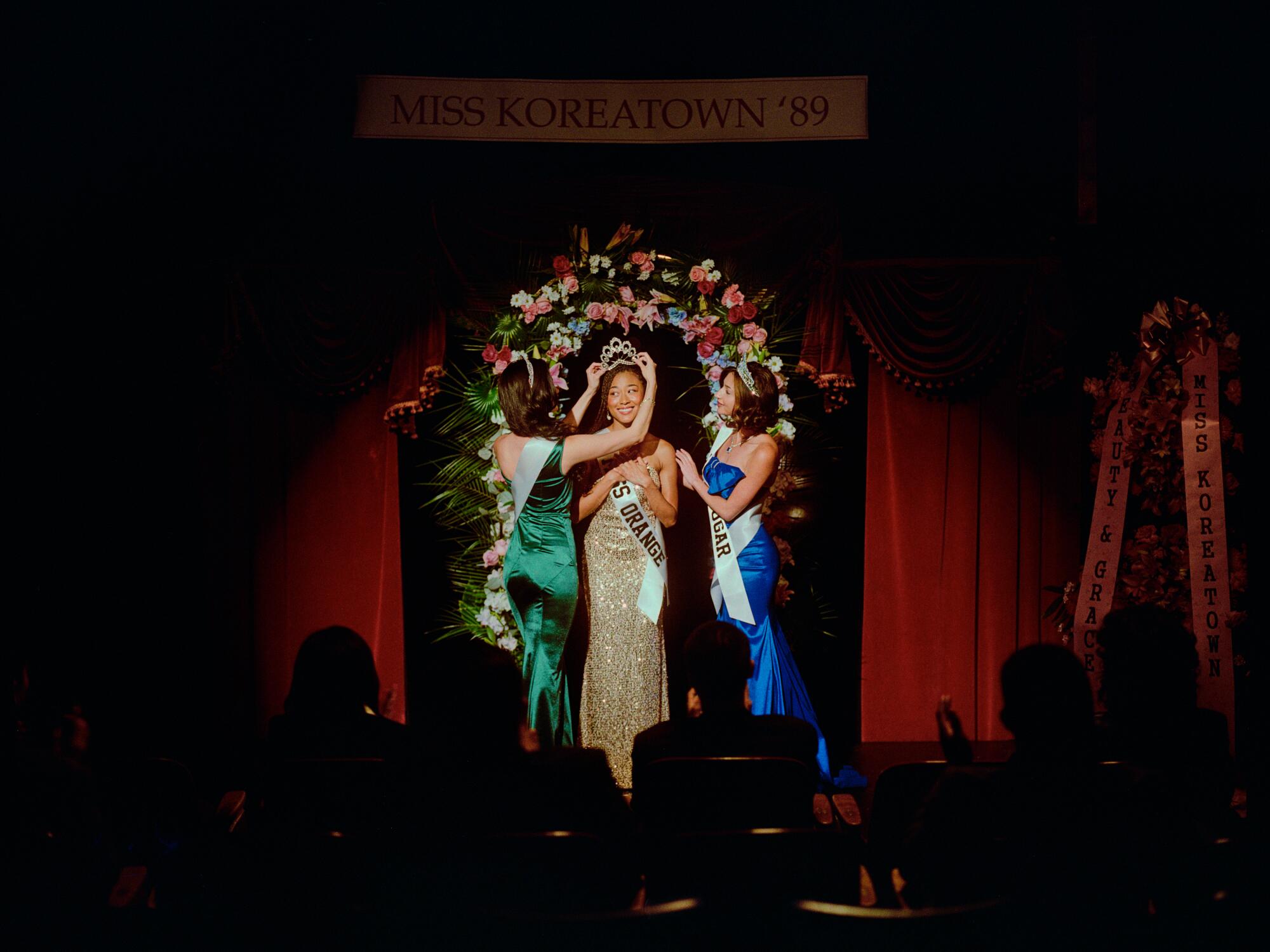
Photography & Production Emanuel Hahn
Models Blair Kim, Minji Marie, Ari Rivera
Wardrobe Juliet Vo
Set Design Victoria Foraker
Photo Assistant Carly Hildebrant
Wardrobe Assistant Paige LaViolette
Makeup Daphne Chantell Del Rosario
Hair James Gilbert
Production Coordinator Crystal Rivera
Retoucher Jamie Kang
Archival photos courtesy of Leehwa Weddings & Hanbok
